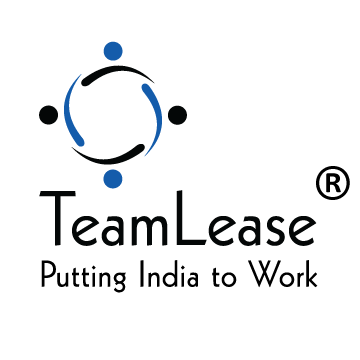Is Recruitment Process Outsourcing about a mere onsite deputation?

A byline authored by Kunal Sen and Sivakumar N, talks about the advantages of RPO and how ‘Predictive Hiring’ would serve as extension of the company’s human resources department.
In the Indian Context there is a wide misconception on what RPO means. Recruitment Process Outsourcing Association (RPOA) defines RPO as “a form of business process outsourcing where an employer transfers all or part of its recruitment processes to an external provider”. Recruitment Process Outsourcing providers can manage the entire recruiting/hiring process, or can manage one or two aspects of the process, essentially serving as an extension of the company’s human resources department”.
Essentially RPO is about bringing in predictability into the recruitment processes through dis-aggregating tasks and handing them over to specialist/s. Recruitment Services have been perceived as a human intensive and laborious. RPO breaks the myths of many such thought processes by offering results to customers on a real time basis. RPO aims at managing 100% fulfillment in a manner enabling decision making both for business teams and talent acquisition teams. A win win situation for both customer and the provider unlike the contingent model where there are very low levels of accountability to offer support and the choice of catering to difficult-to-hire roles lying with the provider making it a risky proposition for the customer.
Providing a recruiter on the rolls of the provider is not genuinely an RPO process as is misunderstood by the many in the recruitment industry. RPO is more than than outsourcing services as it can only succeed with mutual coordination and handholding on each process.
The levels of accountability to serve increases when the provider has exclusivity of requirements against the competition and the investment of time, money and effort are equally rewarded by outcomes. The provider is tied down by SLA’s and governance for the client to have a hold on the outsourced recruitment process which could prove risky if the commitment is not honoured to.
Few of the strengths which a true RPO brings to the table are predictability in hiring within TAT, enhanced employer branding, superior quality of hires, flexible recruitment, optimising processes through technology and automation, reduced cost per hire etc.
RPO proposition is not just helpful at enterprise level but also cater to the project specific need of an organisation which are sporadic and tsunami in nature. The most reliable answer for volume hiring in terms of TAT and cost efficiency is Project RPO which is designed to address size and scale of any recruitment need.
In today’s need for speed of growth with all the organisations the most edible cuisine to propel growth in terms of human capital is RPO. This is proven with over 50 RPO’s which TeamLease has executed successfully with multiple corporates in the last 18 months. The insights on the challenges revolves around capacity to build, cost consciousness, apt source mix to hire, calibrating the quality of intake, volume hiring requirements, niche or tough to hire skills etc.
Nature of RPO required for the specific needs of organisation vary from a transient engagement to managing the end to end recruitment process for organisations to meet their enterprise demands for manpower. TeamLease have bifurcated these RPO suites as Enterprise, Project, Process, Campus & Blended RPO.
Process RPO’s have gained fame and adoption as they address one or more pain points of the recruitment process which the organisation wants to outsource due to various reasons such as lack of specialisation, lack of manpower etc. One such RPO is POFU Process RPO which is a series of interventions (as defined by the organisation) which predicts the flight risk of an offered candidate through an interactive web and mobile enabled platform. This is truly called as predictive hiring. Any volume transaction process in recruitment can be outsourced as it saves manpower and creates better efficiency in the hiring eco system enabling the core team to focus on more important tasks.
How can RPOs help Startups? Well most of the Startups need to start from scratch. The first 50 employees in a startup are critical hires as they need to share the vision and goals of the founders. RPOs can help Startups to staff people by offering them exclusive services like salary survey and benchmarking, employer branding and analytics and other such value adds which will enable the recruitment engine to propel them.
Indian RPO industry is crossing the 1000 crore mark in the year 2017 with large players signing volume and long-term deals. There is a growth of 20-25% year-on-year for RPO and the acceptance and adoption industry wide is becoming rapid. Looks like RPO is the answer for all questions the recruitment challenges pose in India.
This article was published in World HR Diary: https://goo.gl/GTiQs6
Latest Blogs
Test Post
ecrvbtbtbybybyb ddecececec edececece edecece h1 tag h2 tag h3 tag h4 tag h5 tag h6 tag lsit 1 list 2 list 3 wsmw swwww efgh...
Read MoreRevitalizing and Transforming Manufacturing Sector in India
Challenges Confronting India's Manufacturing Marvel Inadequate Tech-Based Infrastructure:The enhancement of competitiveness in the manufacturing sector relies heavily on innovation-driven infrastructure, particularly in areas such as...
Read MoreTemporary Jobs Sees a Spike During Festive Hiring
The seasonal hiring landscape becomes more competitive A wider set of organisations is increasing the demand for temporary jobs. Employers looking to fill seasonal roles...
Read MoreThe Road Ahead: India’s FMCG Industry, Sector and Market Insights
Primary Forces Behind the Expansion of the FMCG Sector The Development of E-Commerce: The technological revolution impacted India's urban and rural areas. There has been...
Read MoreCurious Case of Educated Unemployment Problem in India
Key factors contributing to India’s joblessness Population growth vs. job creation Quality of education Skill gap Job mismatch Economic slowdown Preference for government jobs Why...
Read More





